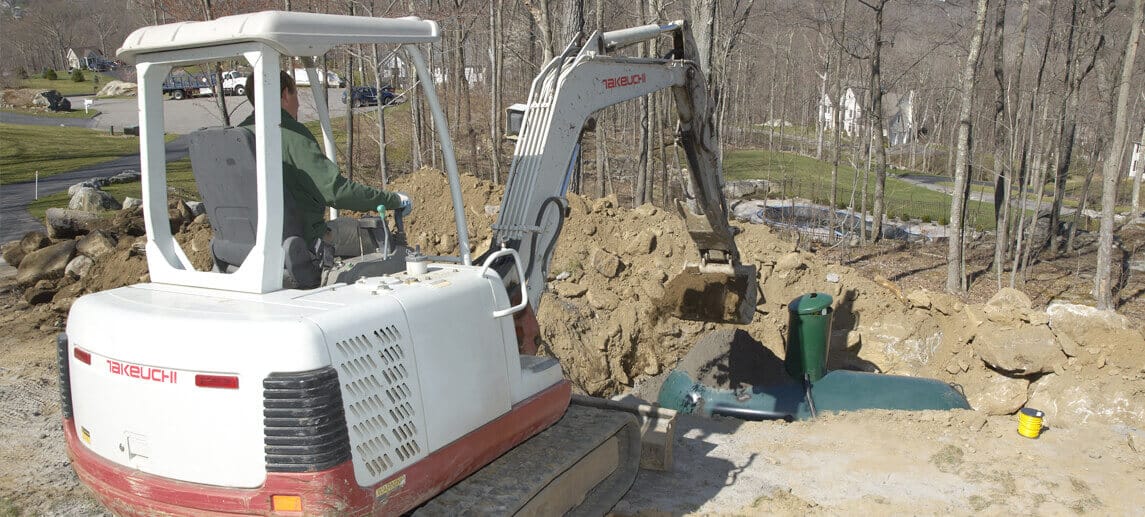The 10-Second Trick For Excavating Contractors
Wiki Article
Excavating Contractors Can Be Fun For Anyone
Table of ContentsSome Known Facts About Concrete Contractors.The 8-Minute Rule for ExcavatorFascination About Mini ExcavatorExcitement About General ContractorThings about Mini Excavator


Scrapers or Pans excavate dirt in one place, haul and also dump the dirt in another spot (demolition). It is difficult to match the performance of scrapers for cut/fill soil operation if the haul range is much less then a mile. Scrapers are normally pulled by a rubber tire wheel tractor as well as are often pushed via the cut area by an excavator.
There are often times that scrapes are not made use of for site grading and a dump truck is used: the haul might be to long, the haul might cross roadways where scrapers are not permitted, acid rock may be encountered, tools availability, and so on. Discard vehicles are in usual use as well as most likely need little discussion.
Lots of vehicles have a top-hinged tailgate that can not dump any rock wider then the tailgate size. "Rock body" beds, on the various other hand, have no tailgates and also can dispose any type of size rock, although their volume capability is reduced. These web links show equipment specifications for a number of common dump vehicles. Compaction Equipment increases the thickness of the soil as well as in many cases gives a smooth, rolled surface area.
Rumored Buzz on General Contractor
From an easy test pit to percussion drilling to core exploration the owner has significantly more costly options that generate significantly better information regarding the site underground. For example, the Owner on a 100,000 SF building job may accredit twenty dull areas with split spoon soil examples taken until rock is reached and after that core samples of rock.Recognizing the kind and also quality of rock (from the core samples) as well as place of rock (from the dirts boring) is a real advantage in jobsite planning. On the other hand, the Proprietor of a 100,000 SF structure might decide to proceed with no geotechnical screening whatsoever. The choice about geotechnical testing is normally made by an Owner without input from the Building Supervisor.
An understanding of the approximate location of the rock assists the Construction Manager to intend the series of actions adhering to rock excavation. If rock is in one corner of a huge building project, for example, the planet excavation could start at the opposite end of the building in order to begin structure job soonest.
Starting the structure job early would be a good suggestion if the rock can be eliminated by ripping. Nonetheless, if the rock is very tough as well as calls for significant blasting, it may be prudent to hold foundation work up until the blasting is completed. The Construction Manager need to collaborate these sorts of decisions and also use all the technological day available.
The Ultimate Guide To Excavation Companies
Unidentified excavation stipulates that all rock or various other unanticipated products (omitting hazardous products) encountered in the sitework will be the duty of the Professional at no modification in agreement expense. An unidentified excavation is less complex from a book-keeping perspective and places the duty for geotechnical problems onto the Sitework Professional.It's amazing what a heavy rain can do to a construction task. Prior to the rain, the website might be completely dry, hefty equipment efficiently relocating planet, the various other trades efficiently performing their work.
In a lot of locations of the globe, the Building Supervisor should remember a basic truth: IT WILL RAIN. Good preparation can minimize the damages and also disruption of a heavy rainfall to a jobsite. Commonly the excavation and grading is entrusted to the Sitework Contractor (and their Foremen is responsible to oversee and direct the heavy devices as well as operators).
As A Result the Construction Supervisor need to be constantly aware of what rainfall will certainly do to the project site. It is not unusual for the Sitework Foreman to work their heavy equipment for optimal performance as well as wish it doesn't rainfall. One of the very best methods to get ready for rainfall is to incline all grades to drain and also to smooth rolled the surface area before a rain.
The Single Strategy To Use For Excavating Contractors
The Construction Supervisor must be discerning enough to guarantee that heavy rain does not quit working on the job much longer than essential. Daily conversations with Sitework Foremen may be called for to accomplish this objective. At any time excavation is called for below the existing aquifer on a project, the process of dewatering have to be taken into consideration.In a genuinely cohesive soil, the water look at this website travels so slowly via the clay or silt that dewatering is not typically necessary for the relatively brief time of excavation. Dewatering may be required for a single ground excavation or for a whole project site. The most common dewatering techniques are trench drains, deep wells and well points.

Ground water infiltration can also be reduced by cutoff techniques such as sheet stacking. The expenses for dewatering excavation business can be staggering, consisting of tools rental, labor as well as electrical power (or gas). High dewatering prices have actually faded the earnings margins on much a lot of tasks. The numerous variables detailed below make the work of estimating dewatering costs extremely hard, as well as extremely inexact.
This alternative needs to always be taken into consideration when evaluating the possibility of dewatering. Undoubtedly the choice is just sensible if gravity can run the water to lower ground. Trench drains pipes can be cut with a backhoe as well as loaded with a crude, granular material (# 4 stone for instance), yet treatment needs to be exercised in choosing the water electrical outlet kind and also place.
How Excavation Companies can Save You Time, Stress, and Money.
A siphon, necessarily, utilizes air pressure to carry water from one elevation, up over a challenge, to a reduced altitude. The pipelines in a siphon system have to be airtight as well as some resourcefulness is usually needed to entirely fill up the siphon pipe. The siphon pipeline need to be complete for the siphon to start.A deep well contains a pump, hose pipe as well as a vertical well casing. The pump consumption is at the bottom of the well casing (usually some smashed rock is put there as a link filter medium) (concrete contractors). The water is pumped up the pipe, out of the well casing, and to a suitable discharge place.
In a coarse sand, for instance, a large location can be pumped to near the pump intake altitude. A much less permeable soil, on the other hand, minimizes the performance of a deep well. Considering that the pump is typically at the end of the deep well, there are no elevation constraints as a result of vacuum lift, and also deep wells can lower the groundwater over 50 feet.
Under of the wellpoint there is a 2 foot long screen and valve, water jets out of this valve as well as develops a hole right into which the wellpoint pipe can be decreased. This hole is commonly made a bigger diameter (as an example 10 inches) to allow for a coarse sand backfill to aid filter the water (trencher).
Report this wiki page